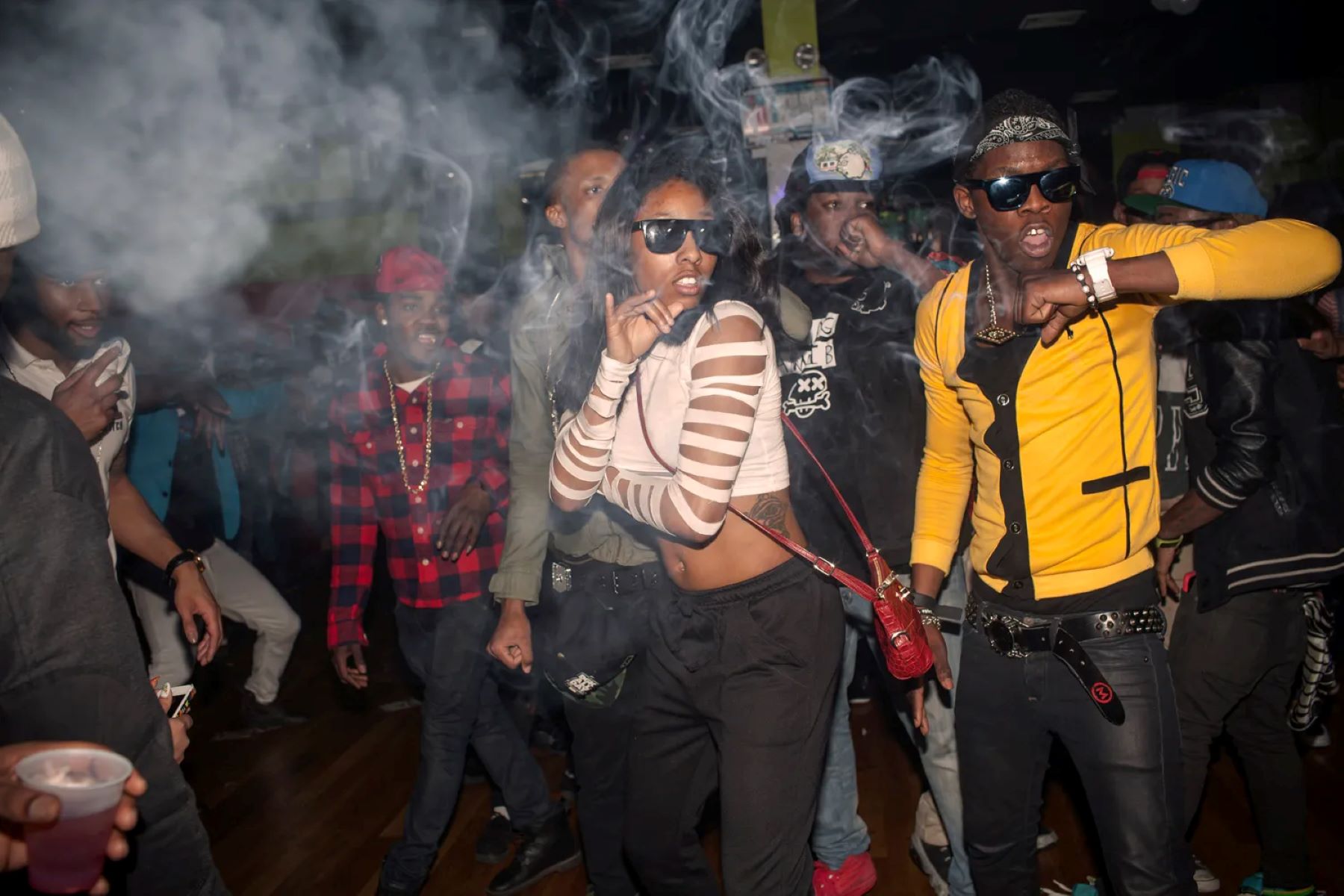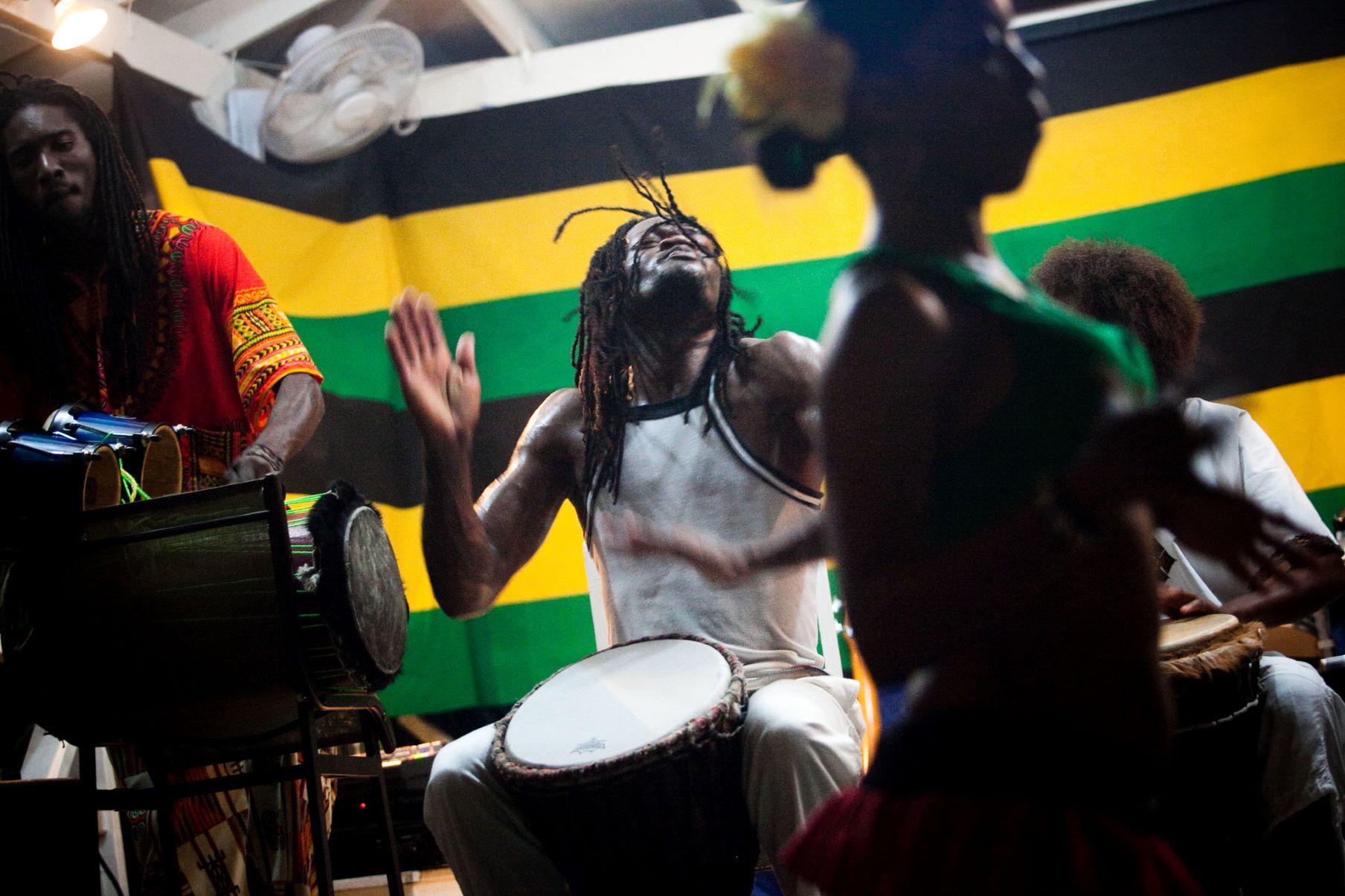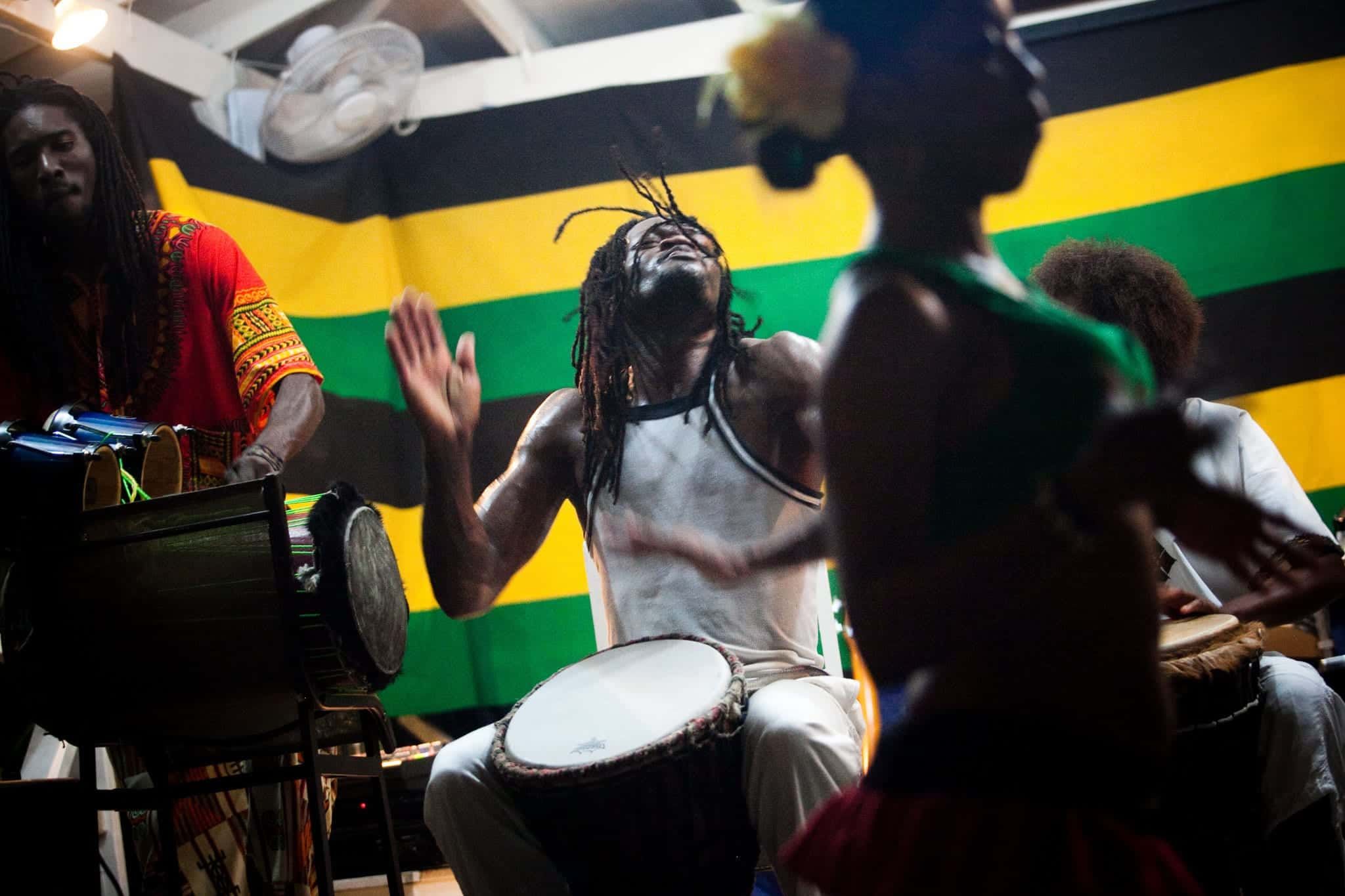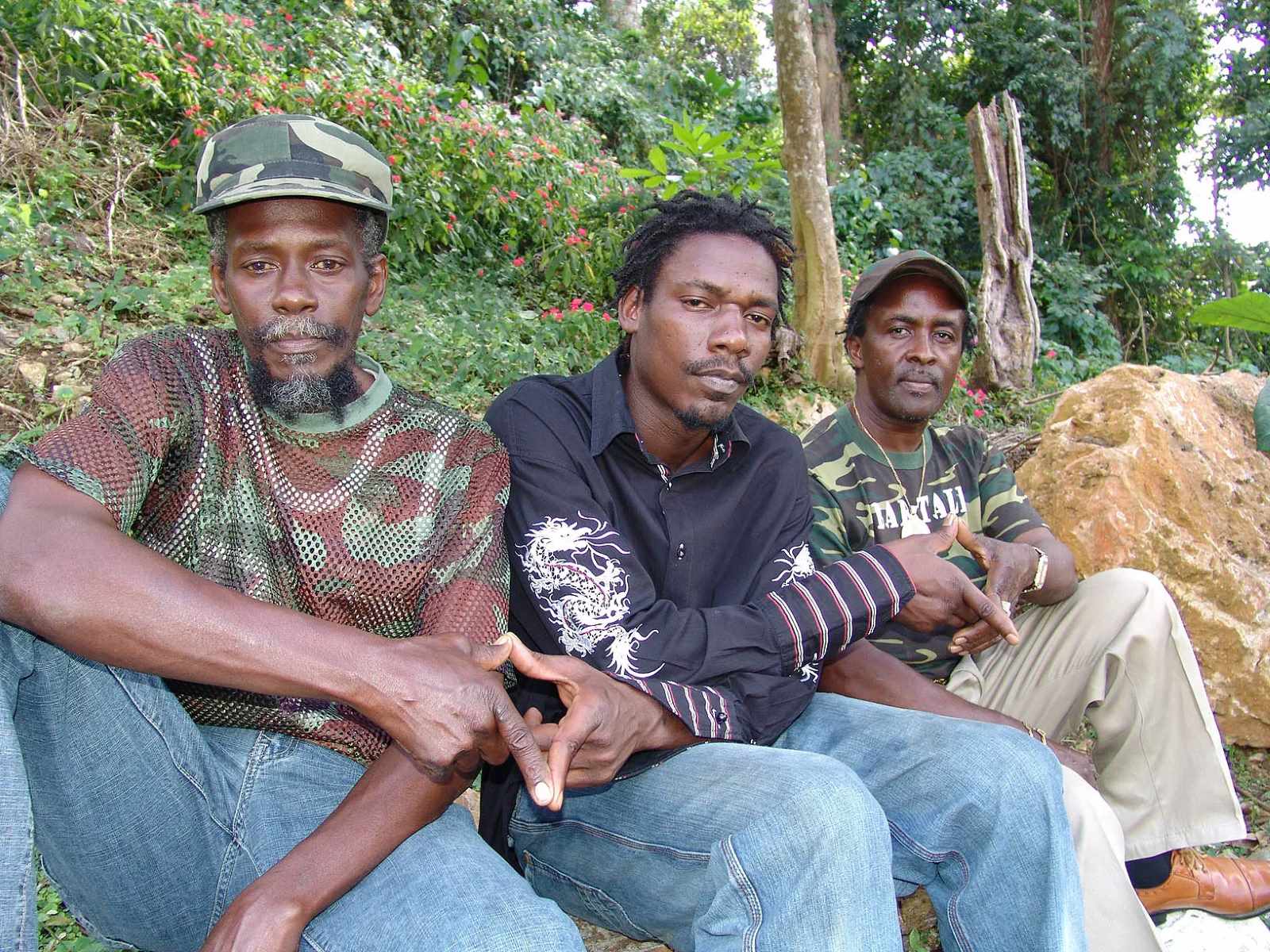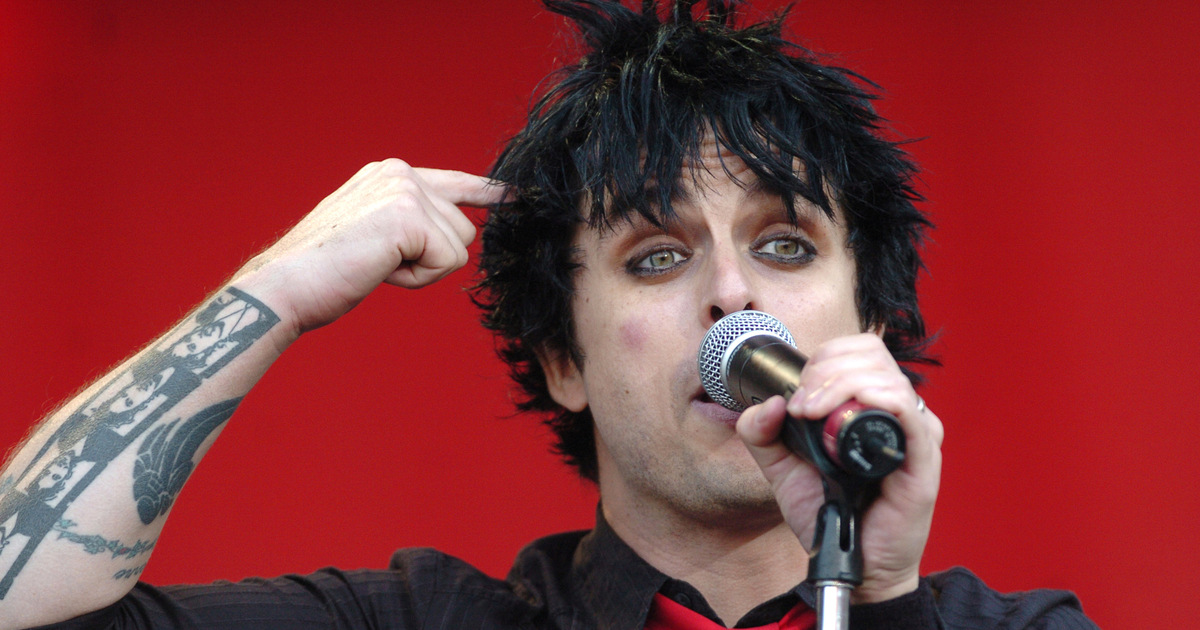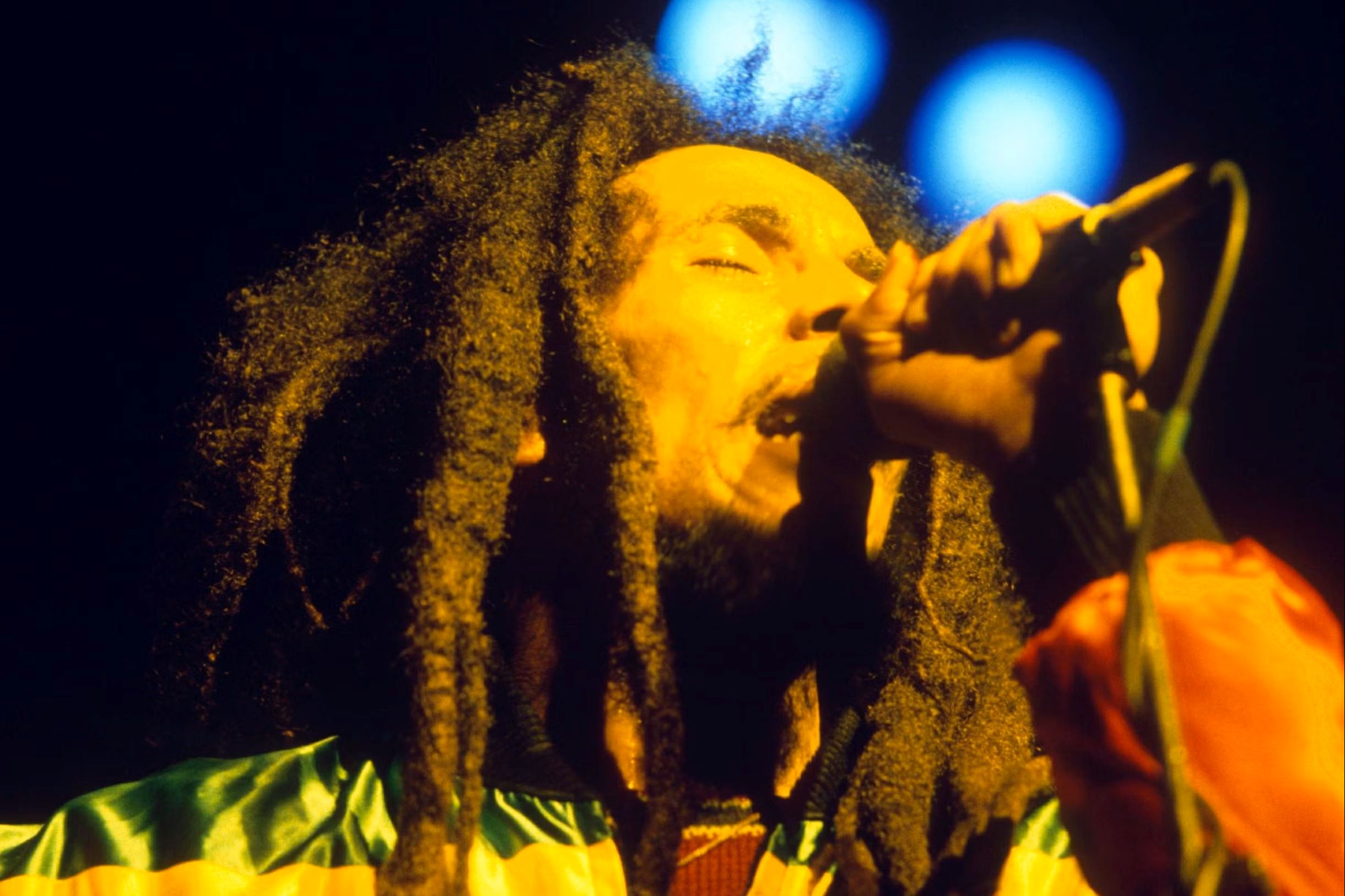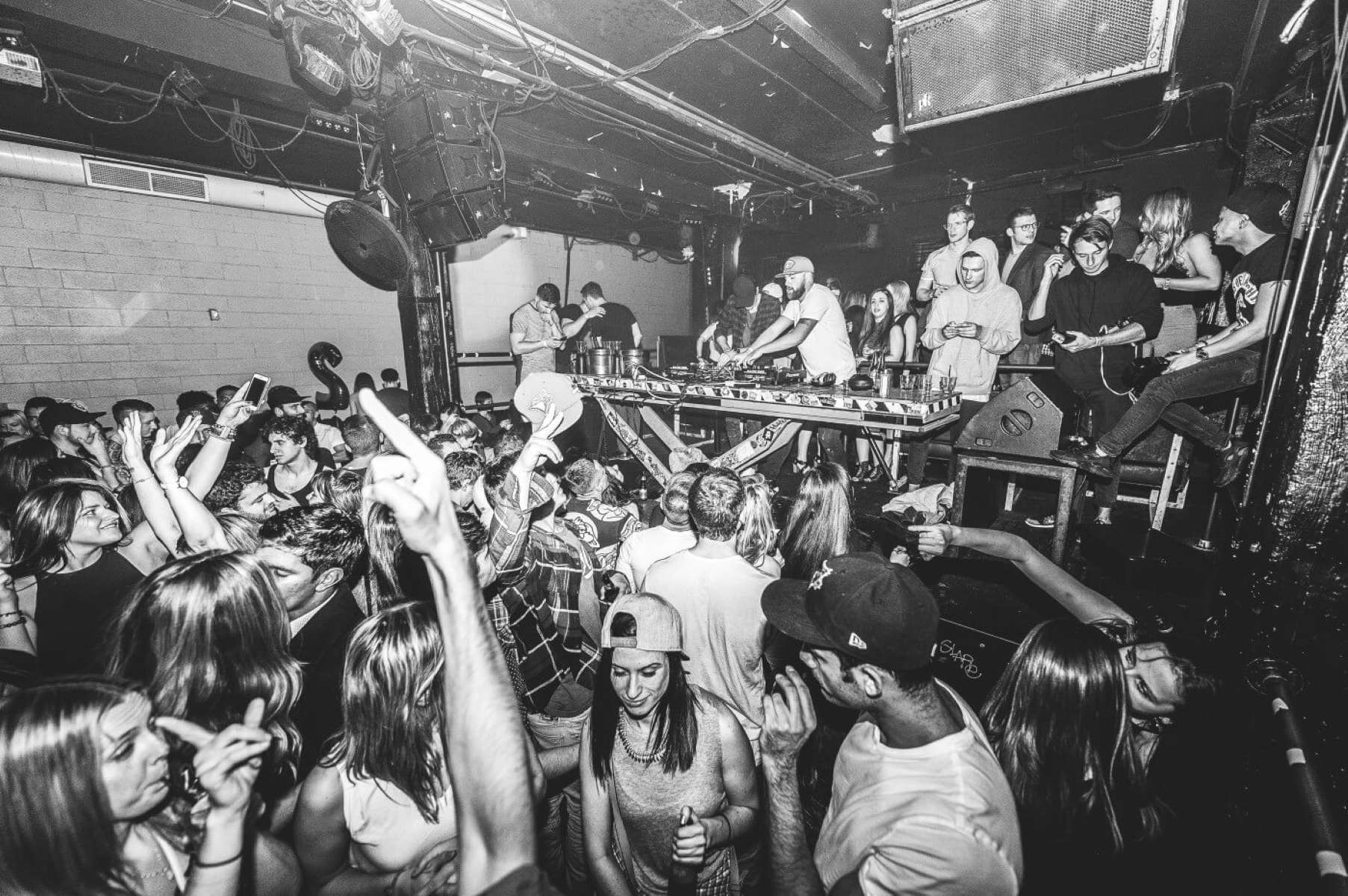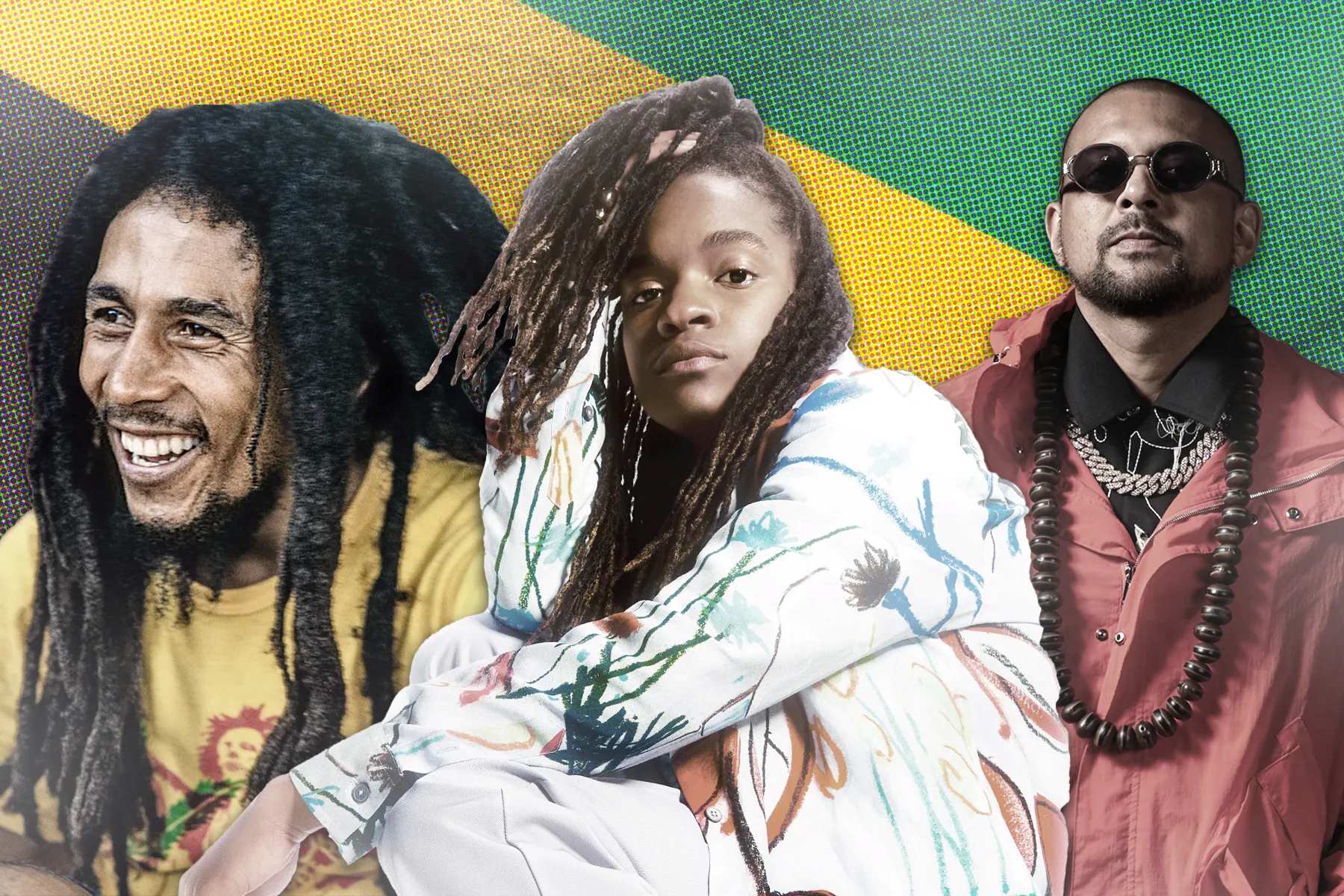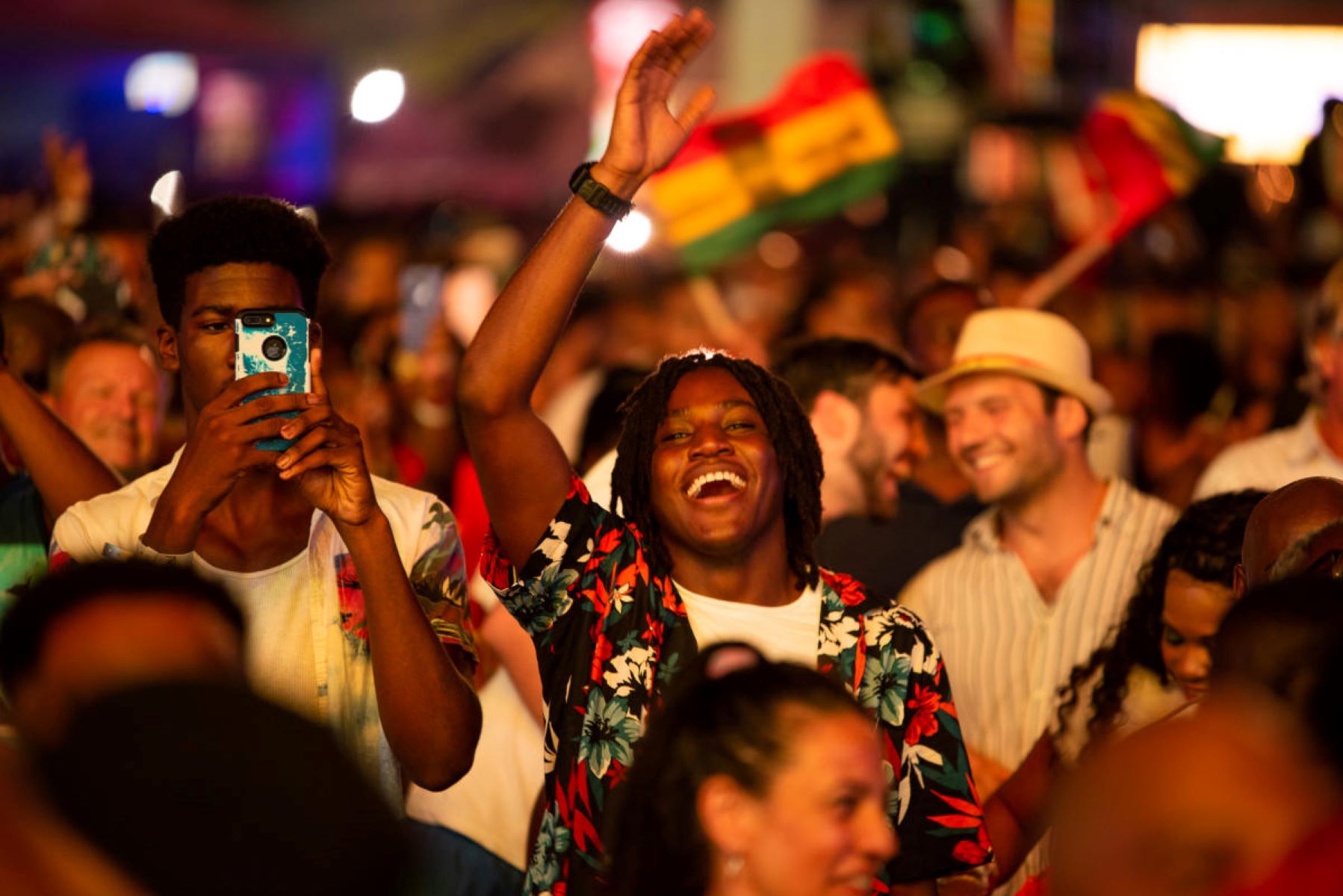

Reggae
What Day Is International Reggae Day
Modified: March 5, 2024
Celebrate the rhythm and vibes of Reggae on International Reggae Day. Join us for a day filled with music, culture, and positive vibrations from around the world.
(Many of the links in this article redirect to a specific reviewed product. Your purchase of these products through affiliate links helps to generate commission for AudioLover.com, at no extra cost. Learn more)
Table of Contents
Introduction
Reggae, a genre of music that originated in Jamaica in the late 1960s, has not only captured the hearts of millions around the globe but has also become a symbol of liberation, unity, and resistance. Its infectious rhythms, soulful melodies, and conscious lyrics have made it a powerful force, transcending borders and crossing cultural barriers.
International Reggae Day, celebrated on July 1st every year, is a global observance that recognizes and honors the influence and impact of reggae music worldwide. This day serves as a reminder of the genre’s indelible contribution to music, culture, and social change.
On International Reggae Day, enthusiasts, musicians, and fans from all walks of life come together to pay homage to the rich heritage of reggae and to celebrate its legacy. It is a time to reflect on the genre’s roots, appreciate its evolution, and acknowledge the artists who have dedicated their lives to spreading its message.
The power of reggae lies not only in its infectious rhythms but also in its ability to convey meaningful messages of love, peace, and social justice. From its beginnings in the impoverished streets of Kingston, Jamaica, reggae quickly became a voice for the marginalized and a platform for social commentary.
Reggae’s unique blend of influences from ska, rocksteady, and traditional African music, coupled with lyrics that address political and social issues, set it apart from other genres. Bob Marley, hailed as the king of reggae, played a pivotal role in popularizing reggae on the international stage, using his music as a tool to spread messages of unity and liberation.
Since its inception, reggae has grown into a global phenomenon, touching the lives of people from all corners of the world. It has become a powerful medium for cultural expression, allowing individuals to connect with their roots and embrace the spirit of inclusivity.
International Reggae Day serves as an annual reminder of the genre’s universal appeal and impact. It is a day to recognize the artists, producers, and musicians who have dedicated their lives to creating and spreading reggae music. It is also an opportunity to educate and inspire future generations about the cultural significance of reggae.
In the following sections, we will delve into the history of International Reggae Day, its significance and celebrations, the global impact of reggae music, and the events and activities that take place on this special day.
History of International Reggae Day
The origins of International Reggae Day can be traced back to July 1st, 1994, when it was first celebrated in Jamaica. The day was initially conceived by music producer Andrea Davis and her partner, Copeland Forbes, as an annual event to honor the rich cultural heritage of reggae music.
Recognizing the global influence and popularity of reggae, Davis and Forbes wanted to create a platform to celebrate the genre’s impact on music, culture, and society. They envisioned a day dedicated to promoting unity, appreciation, and awareness of reggae’s contributions to the world.
International Reggae Day gained official recognition in 2007 when the Jamaican government declared it an official observance. Since then, it has garnered increasing attention and participation both locally and internationally. The day has become an opportunity for people worldwide to embrace the spirit of reggae, its messages, and its cultural significance.
Each year, International Reggae Day focuses on a specific theme that amplifies the core values and principles of reggae. The theme serves as a guiding force for the events and activities that take place during the day. It encourages individuals and communities to reflect on reggae’s transformative power and how it can be harnessed to address contemporary issues.
One of the key objectives of International Reggae Day is to highlight the pioneers and trailblazers of reggae music. It recognizes the artists who have shaped the genre and brought it to the forefront of global consciousness. From Bob Marley and Peter Tosh to Jimmy Cliff and Burning Spear, these visionaries have left an indelible mark on the world of music.
Furthermore, International Reggae Day seeks to foster collaborations and connections within the reggae community. It provides a platform for emerging artists to showcase their talents and share their unique perspectives. Through workshops, concerts, panel discussions, and exhibitions, the day facilitates networking and knowledge sharing among musicians, producers, industry professionals, and fans.
The celebration of International Reggae Day extends far beyond Jamaica’s borders. It has expanded into a global movement, with events and activities taking place in cities worldwide. From reggae concerts and music festivals to art exhibitions and educational seminars, people of all backgrounds come together to honor reggae’s rich legacy and its ongoing influence.
Through the celebration of International Reggae Day, the world not only pays homage to the genre’s origins but also embraces its future. It serves as a reminder that reggae’s spirit of love, unity, and social consciousness remains as relevant today as it was when it first emerged.
Next, we will explore the significance and celebrations of International Reggae Day, delving into how it continues to inspire and unite people from all walks of life.
Significance and Celebration of International Reggae Day
International Reggae Day holds immense significance as it serves as a global celebration of the music, culture, and impact of reggae. The day is not only a tribute to the genre’s roots in Jamaica but also a reminder of its universal appeal and its ability to promote unity, love, and social justice.
One of the key messages that International Reggae Day conveys is the power of music as a transformative force. Reggae’s soul-stirring melodies, infectious rhythms, and conscious lyrics have the ability to inspire and uplift, making it a medium for positive change. It serves as a reminder that music can be more than just entertainment—it can be a catalyst for social transformation.
On International Reggae Day, celebrations take place around the world, with a wide range of events and activities that capture the essence of reggae and its cultural significance. Concerts featuring renowned reggae artists, both established and emerging, take center stage, bringing people together to groove to the rhythms and lyrics that have shaped the genre.
The day also serves as an opportunity for reggae enthusiasts to deepen their understanding of the music. Educational workshops and seminars explore the history, techniques, and cultural context of reggae, allowing participants to gain a comprehensive appreciation for the genre.
Art exhibits and cultural displays showcase the visual aspects of reggae, highlighting album covers, photographs, and art pieces that evoke the spirit of the music. These exhibitions offer a window into the visual creativity and artistic expressions that have often accompanied reggae’s sonic landscape.
Communities come together to organize street parties, parades, and sound system competitions, creating a vibrant atmosphere that allows people to immerse themselves in the reggae experience. The celebration is not limited to music alone but extends to all aspects of the reggae culture, encompassing fashion, food, dance, and the overall lifestyle associated with the genre.
International Reggae Day is also a time for reflection and introspection. It serves as an occasion to contemplate the profound messages within reggae lyrics, which often address social issues, cultural identity, and personal empowerment. It prompts individuals to engage in discussions about the impact of reggae on society and its potential for creating positive change.
Moreover, International Reggae Day fosters an environment of unity and inclusivity. It brings people from diverse backgrounds together, transcending boundaries of race, nationality, and social status. The celebration builds bridges between individuals and communities, emphasizing the common humanity that connects us all.
By honoring International Reggae Day, we recognize and pay tribute to the artists, musicians, and activists who have used reggae as a platform to promote social justice and equality. The day serves as a reminder of the ongoing struggle for liberation and the power of music to amplify voices and inspire movements.
In the next section, we will explore the global impact of reggae music, delving into how it has influenced and shaped cultures around the world.
Global Impact of Reggae Music
Reggae music has had an unprecedented global impact, transcending cultural boundaries and influencing countless individuals and societies worldwide. From its roots in Jamaica to its reach across continents, reggae has become a powerful force that resonates with people from all walks of life.
One of the key factors contributing to reggae’s global appeal is its universal message of love, unity, and social justice. The lyrics and themes in reggae songs address a wide range of topics, such as poverty, oppression, freedom, and spirituality, connecting with people across different cultures who have experienced similar struggles.
The enduring popularity of reggae can be attributed to its distinctive sound. The infectious rhythms, characterized by the prominent use of the offbeat, the deep basslines, and the syncopated guitar and keyboard patterns, create a hypnotic groove that captivates listeners. This unique sonic landscape has influenced numerous music genres, including rock, hip-hop, and electronic music, further expanding reggae’s global reach.
Bob Marley, hailed as reggae’s most iconic figure, played a significant role in popularizing the genre worldwide. With his signature dreadlocks, radiant smile, and socially conscious lyrics, Marley became a cultural ambassador for reggae, deeply impacting audiences on a global scale. His songs, such as “One Love,” “No Woman, No Cry,” and “Redemption Song,” continue to inspire generations, transcending cultural and linguistic differences.
The rise of reggae music in the late 1960s and 1970s coincided with a period of significant social and political change around the world. The genre became intertwined with movements advocating for equal rights, peace, and the end of oppression. As reggae’s popularity grew, so did its influence on activists and musicians across the globe who saw it as a vehicle for expressing their dissent and rallying for social change.
Reggae’s impact can be seen in various corners of the world, from the emergence of reggae bands in countries such as the UK, the US, and Nigeria to the adoption of reggae elements in popular music across genres. Artists like Jimmy Cliff, Toots and the Maytals, and Peter Tosh helped spread the reggae sound beyond Jamaica, paving the way for international appreciation and recognition.
In Africa, reggae music was embraced as a powerful form of expression during the struggle against colonialism and apartheid. Artists such as Lucky Dube from South Africa and Alpha Blondy from Ivory Coast became cultural icons, using reggae to voice their resistance and advocate for social justice.
Reggae’s influence also extends to countries in Europe and the Americas, where it has shaped the cultural landscape and inspired generations of musicians. In the UK, the birthplace of reggae bands like UB40 and Steel Pulse, reggae became deeply ingrained in the multicultural fabric of the country, reflecting the experiences of immigrant communities.
Today, reggae continues to thrive globally, with artists from all corners of the world incorporating reggae elements into their music. From reggae fusion to reggae-inspired pop hits, the genre’s impact can be heard in the diverse sounds of artists like Rihanna, Bruno Mars, and Major Lazer.
The cultural impact of reggae is not limited to music alone. It has influenced fashion trends, visual arts, and even the way people think and perceive the world. The Rastafarian movement, closely associated with reggae music, has brought awareness to African spirituality, natural living, and social justice, leaving an indelible mark on global culture.
The global reach of reggae serves as a testament to its enduring power and its ability to unite people across borders. International Reggae Day celebrates this global impact and fosters a sense of solidarity among reggae enthusiasts worldwide.
In the following section, we will explore the events and activities that take place on International Reggae Day, showcasing how people come together to honor the music and culture of reggae.
Events and Activities on International Reggae Day
International Reggae Day is marked by a wide array of events and activities that celebrate the music, culture, and legacy of reggae. From concerts and performances to educational workshops and cultural exhibitions, the day is filled with opportunities for everyone to engage with reggae in meaningful ways.
Concerts featuring renowned reggae artists are at the heart of the International Reggae Day celebrations. These performances showcase the talents of both established and emerging artists, providing a platform for them to share their music and connect with audiences. From reggae legends to rising stars, these concerts offer an unforgettable experience for reggae enthusiasts to immerse themselves in the genre’s intoxicating rhythms and melodies.
In addition to live performances, International Reggae Day often features sound system competitions and DJ sets. Sound systems are a fundamental part of reggae culture, involving massive speaker systems and selectors who play the latest reggae tracks, engaging the crowd with their vibrant energy and music selections.
Educational workshops and seminars are an essential part of International Reggae Day’s agenda. These sessions delve into the history, significance, and techniques of reggae music and provide participants with an in-depth understanding of the genre. Workshops may cover topics such as the cultural roots of reggae, songwriting techniques, drumming and bassline patterns, and the social impact of reggae music.
Cultural exhibitions and art displays offer a visual representation of reggae’s influence and significance. These exhibits often feature artwork, photographs, and memorabilia that highlight the visual aesthetics and artistic expressions associated with reggae. They provide a deeper understanding of the cultural and historical context of reggae and invite participants to reflect on the genre’s visual impact.
International Reggae Day celebrations are not limited to music and art but also encompass elements of reggae culture such as fashion and food. Fashion shows featuring reggae-inspired designs and clothing celebrate the unique style associated with the genre. Food vendors offer a taste of Jamaican cuisine, including jerk chicken, curry goat, and other traditional dishes, allowing participants to experience the flavors and culinary traditions that accompany reggae culture.
Community events and parades are another highlight of International Reggae Day. These events bring people together to celebrate the genre’s spirit of unity and inclusivity. They often involve street parties, dancing, and vibrant displays of reggae-inspired fashion and art. The atmosphere is filled with an infectious energy as people from diverse backgrounds come together to honor and embrace the reggae experience.
Virtual celebrations have also become increasingly popular, especially in recent years. With the advent of technology, people worldwide can participate in International Reggae Day through livestreamed performances, online workshops, and virtual exhibitions. This allows reggae enthusiasts from all corners of the globe to come together and celebrate the music and culture of reggae, regardless of geographical distance.
International Reggae Day serves as a reminder of the genre’s impact and significance. It is a day when people from all walks of life can come together to appreciate the rich heritage of reggae, connect with its rhythms and messages, and engage with the global reggae community.
In the next section, we will explore the recognitions and awards bestowed upon International Reggae Day, highlighting its growing recognition and influence globally.
Recognitions and Awards for International Reggae Day
Over the years, International Reggae Day has garnered increasing recognition and has been honored with various awards and accolades. The global influence and cultural significance of the genre have not gone unnoticed, leading to official acknowledgments and prestigious accolades.
In 2019, the United Nations Educational, Scientific and Cultural Organization (UNESCO) added reggae to its prestigious list of Intangible Cultural Heritage of Humanity. This recognition highlighted reggae’s profound impact on global culture and its ability to transcend borders, embodying the values of “inclusivity, respect, and love.”
Furthermore, International Reggae Day has received acclaim from governments and organizations around the world. In Jamaica, the birthplace of reggae, the day has been recognized as an official observance by the government since 2007. This acknowledgement emphasizes the importance of reggae music in Jamaican culture and society.
Internationally, numerous reggae festivals and events have honored International Reggae Day through special awards and dedications. These recognitions highlight the day’s significance in promoting reggae music, culture, and its impact on global communities.
Additionally, musicians and artists who have made significant contributions to reggae have been recognized and celebrated on International Reggae Day. Awards and honors are bestowed upon individuals who have dedicated their careers to spreading reggae’s message of unity, peace, and social justice.
The annual Reggae Month in Jamaica, held in February, culminates with International Reggae Day and showcases the nation’s commitment to honoring the genre. Throughout the month, numerous events and activities lead up to the grand celebration of reggae on July 1st, underscoring the importance of the genre in Jamaican culture and the tourism industry.
The influence of International Reggae Day has also extended to the business sector, with companies and brands recognizing the day’s significance and sponsoring events and activities. This support from the corporate world further emphasizes the growing global recognition and impact of reggae music.
Reggae musicians and artists are often ambassadors for International Reggae Day, using their platforms to promote and raise awareness of the day’s celebrations. Through their music, performances, and social media presence, they inspire fans to embrace the spirit of reggae, participating in events, and engaging with the reggae community.
The recognition and awards bestowed upon International Reggae Day reflect the growing acknowledgment of reggae as a cultural phenomenon with a profound influence on music, history, and society. These accolades solidify the day’s position as a global celebration and serve as a testament to reggae’s enduring legacy and impact.
As International Reggae Day continues to gain recognition worldwide, it further cements the genre’s place in the annals of music history and its ability to unite people of all backgrounds under the banner of peace, love, and unity.
As we conclude this article, we can appreciate the growth and impact of International Reggae Day in fostering a sense of community, celebrating cultural diversity, and promoting the timeless messages of reggae music.
Conclusion
International Reggae Day serves as an annual celebration of the global influence, significance, and cultural impact of reggae music. This special day brings people together to honor the genre’s roots, appreciate its messages of love, unity, and social justice, and celebrate its diverse and vibrant culture.
From its origins in Jamaica, reggae music has become a powerful force that resonates with individuals from all corners of the world. Its infectious rhythms, soulful melodies, and conscious lyrics have transcended borders, languages, and cultural barriers, spreading messages of hope, resistance, and empowerment.
The history of International Reggae Day, its official recognition by organizations such as UNESCO, and the accolades it has received demonstrate the growing global recognition of reggae as an important cultural phenomenon. The day serves as a reminder of the genre’s enduring legacy and its ability to inspire positive change.
On International Reggae Day, people come together to celebrate the music and culture of reggae through concerts, performances, workshops, art exhibits, and community events. These activities showcase the genre’s diversity, creativity, and ability to connect people on a profound level.
Reggae’s global impact can be seen in the way it has influenced various genres of music, inspired social movements, and transformed cultural landscapes. It has been a catalyst for change, a voice for the marginalized, and a source of comfort and joy for millions around the world.
As we celebrate International Reggae Day, it is important to reflect on the rich history and cultural significance of reggae and to honor the artists, musicians, and activists who have dedicated their lives to its creation and promotion. By recognizing and appreciating reggae, we celebrate the power of music to transcend barriers and create unity among diverse communities.
Whether you’re grooving to reggae beats, attending a concert, exploring the art and culture associated with the genre, or simply reflecting on its impact, International Reggae Day offers a unique opportunity to appreciate and engage with this transformative genre.
As reggae continues to evolve and make its mark on the world, International Reggae Day will remain a beacon of unity, celebration, and cultural appreciation. It serves as a powerful reminder of the enduring legacy of reggae and its ability to bring people together, spread positive messages, and inspire change.
So, as July 1st arrives each year, join the global community in celebrating International Reggae Day, and let the music and culture of reggae uplift your spirits, ignite your passion, and remind you of the universal values that bind us all.

